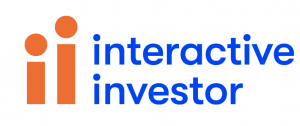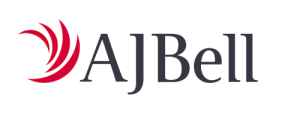During July, our net asset value return was 1.7% and shareholder returns were 2.6%, in comparison to the FTSE All-World Index return of 2.4%
July was another positive month for risk assets (like equities). Technology shares continued to post strong gains, with both the S&P 500 and Nasdaq indices delivering positive performance for the fifth consecutive month. Improved hopes for a ‘soft landing’ in the US (with inflation returning close to target levels without triggering a recession), alongside a strong start to the second-quarter earnings season and low market volatility, supported equity markets and risk sentiment. Chinese authorities signalled further support to boost consumption and shore up the ailing real estate sector, acknowledging frail economic data over the year to date. This led to emerging-market equities outperforming during the month after a period of lacklustre performance, with the MSCI Emerging Markets Index returning over 5.1%, in sterling terms. Commodity prices bounced back, with oil leading gains (+12.8%) on OPEC production cuts and Chinese stimulus.
Energy stocks (+4.9%) outperformed significantly in July as commodity prices reversed some of their year-to-date losses. Agricultural commodities rallied on Russia’s cancellation of the Black Sea grain export deal, and oil prices hit three-month highs on signs of tighter supply and optimism around Chinese stimulus. Technology shares (+3.0%) continued to benefit from optimism related to artificial intelligence (AI). With a growing sense that a US recession may be avoided, defensive segments of the market saw only moderate gains (healthcare and utilities rose by 0.3% and 0.6%, respectively).
On a regional basis, China saw significant outperformance (+9.3%), while the UK (+2.4%), the US (+2.2%), Japan (+2.0%) and Developed Europe (+2.0%) lagged the global benchmark. China had a poor start to the year, with the anticipated ‘V-shaped’ recovery failing to transpire after its zero-COVID-19 policy was dropped by the authorities in late-2022. Beijing is being more proactive in its support of the private sector in response to deteriorating consumer confidence, including new initiatives to boost demand for automotives, electronics and household products, and to promote tourism. Investors have been encouraged by the authorities’ change in tone and expect policymakers will follow recent dovish signalling with more palpable measures. UK stocks rose as inflation dropped to a 15-month low in June (7.9%) – the lowest reading since May 2022. Robust earnings from banks and higher commodity prices provided further support to the UK equity market, where financials and energy make up a significant proportion of the index. Sterling continued its strong run in July (+1.0%) and has gained 6.2% over the year to date, reflecting the need for further rate hikes from the Bank of England.
Microsoft (-2.5%), which is held at an underweight position to the benchmark, was the most significant contributor to relative returns in July. Despite several high-profile AI investments, including partnerships with OpenAI and Meta, and broadly upbeat secondquarter earnings, slowing reported revenue growth from its Azure cloud service (26% versus 27% previously) led to share-price declines in July. Azure, a direct competitor to Amazon Web Services that has seen double-digit revenue growth for the past two years, is seen by analysts as a key growth driver for the firm. Smurfit Kappa Group (+17.8%), the Dublin-headquartered paper-based packaging manufacturer, which is held at an overweight to the benchmark, was another positive contributor to relative returns in July. While the company recently reported lower revenues and profits for the first half of the year, investors welcomed growing market share across several key markets and a 6.0% increase in its interim dividend. In contrast, the Trust’s overweight position in HDFC Bank (-3.8%), India’s largest lender by market value, was the most significant detractor from relative returns, despite net interest income rising 21% year-on-year in the first quarter. Improvements in asset quality and growing new product roll out momentum were overshadowed by short-term volatility surrounding HDFC Bank’s 1 July merger with its parent – a deal that forms the world’s fourth-largest bank by market capitalisation. The Trust’s overweight position in Southwest Airlines (-6.8%) was a further drag on relative returns in July as second-quarter net income fell by 10% year-on-year on rising labour costs, despite relatively strong revenue figures. The demand environment for leisure travel continues to be resilient; however, corporate travel demand is expected to remain lower than pre-pandemic levels for the foreseeable future. As a result, the airline is revamping its flight schedules for 2024 to optimise for post-pandemic demand shifts, which management expects to generate an incremental $500m in pre-tax profit in 2024.
We ended the month at a discount of 9.0%, narrowing from a discount of 9.6% at the end of June. Net gearing continued to be conservative at 4.0% (with debt at fair value) for month-end, reflecting our expectation that markets will remain volatile in the short term. Nonetheless, F&C Investment Trust’s corporate structure makes us well-placed to withstand further market volatility, and we remain focused on the long-term opportunities for the benefit of our shareholders











